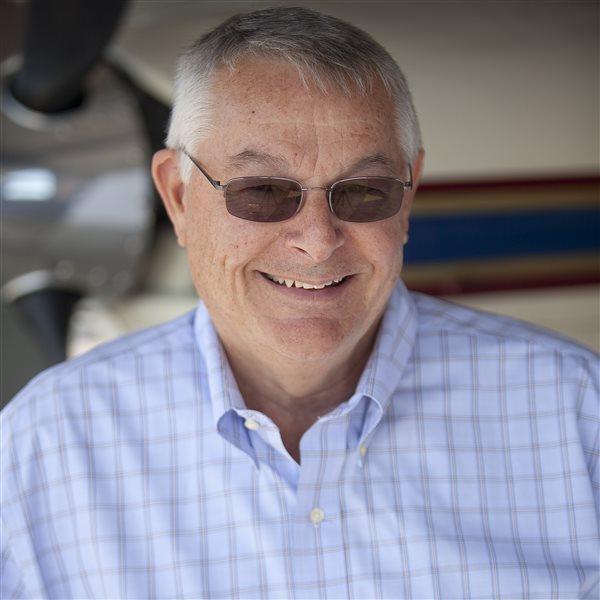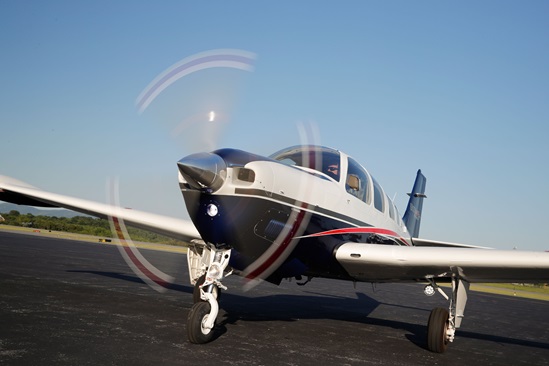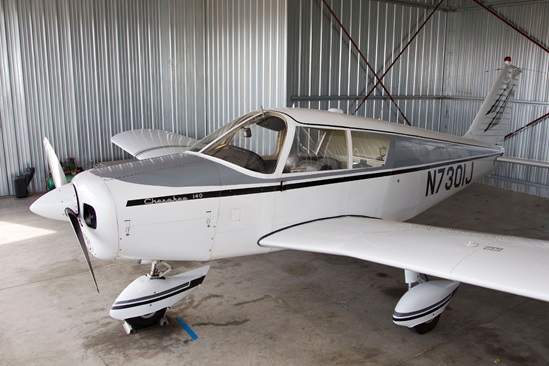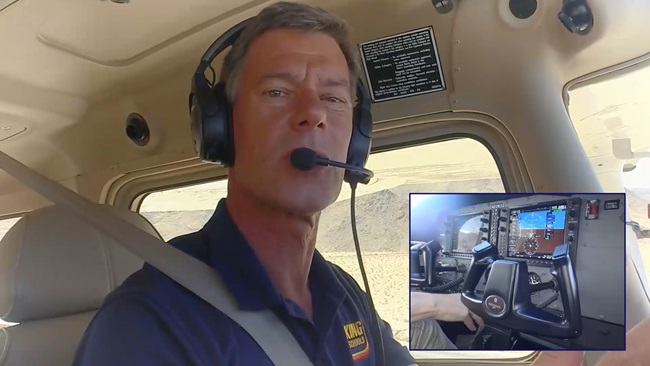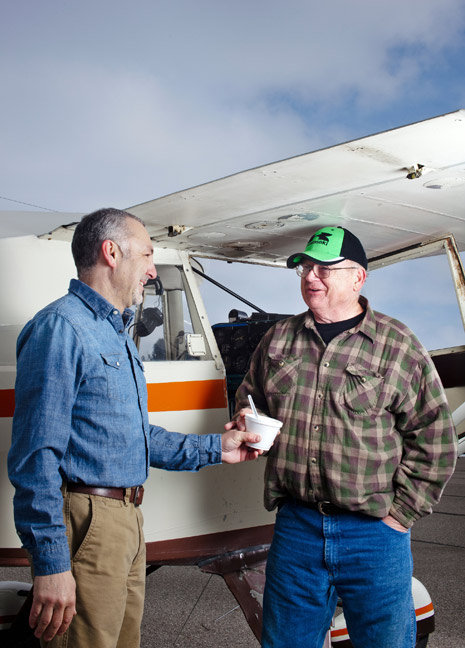 “Aviation is an entirely different world,” a student told me one day. It’s true. We have our own language, love acronyms, and represent a club this is difficult to join. It takes a welcoming atmosphere to entice new recruits, and keep them coming back.
“Aviation is an entirely different world,” a student told me one day. It’s true. We have our own language, love acronyms, and represent a club this is difficult to join. It takes a welcoming atmosphere to entice new recruits, and keep them coming back.
Much of the success depends on the culture found at the local airport. It takes more than a friendly cat or dog with a rap sheet of airport hijinks, an airport car that qualifies as an oddity, and a local restaurant with a great hamburger.
There still are airports operated by people skilled at creating a welcoming, old-style atmosphere. One of those is Clare Municipal Airport (48D) in Clare, Michigan, where a warm cookie and ice cream await arriving pilots. The community prides itself on having been established by friendly immigrants from Clare County, Ireland. It hasn’t lost its touch.
“We greet you like a family member,” said Gary Todd, the airport’s manager. “We don’t expect you to buy anything.” A local business donates ice cream for you and your passengers. That’s why you’ll be asked after your first radio call for the number of people on board.
A courtesy car is available to get pilots into town, where their purchases can help the local economy. Menus from all of the favorite nearby restaurants are available at the counter. Even if you arrive by car and just want to watch the aircraft, you’ll be welcome. “We try to talk with people watching. The more we pull back the curtains, the more people understand it,” said Todd. “It doesn’t cost us a whole lot of money to be nice.”
Customer service is Todd’s advantage over larger, busier airports. While larger airports barely have time to get pilots in and out, Todd can spend more time with his customers. It’s critical to have that advantage, since there are so few flying days in winter. The higher cost of fuel is primarily responsible for keeping airplanes on the ground, he said. Todd admits to having his own special relationship with the airport. “I have a picture of me standing on a wing at this airport when I was two years old. Now I’m the manager. There’s something about this place,” he said.
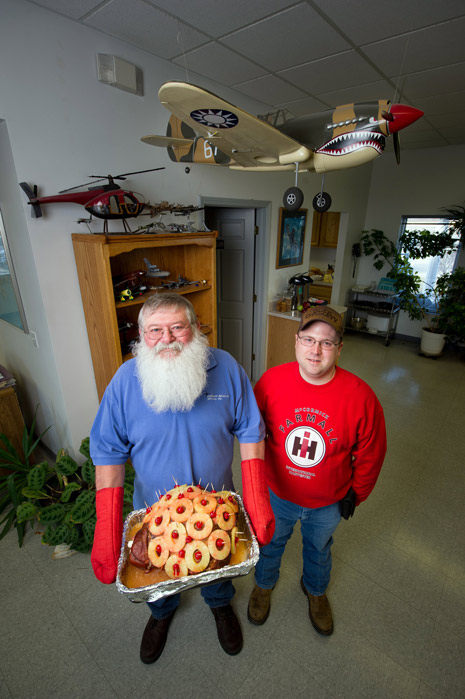
Fried chicken and green beans
Who says there’s no free lunch? Monday at Floyd W. Jones Lebanon Airport (LBO) in Lebanon, Missouri, is always ham-and-beans day, and Friday is always fried chicken day with all the trimmings—including mashed potatoes, gravy, and green beans.
“We do it six days a week,” said Don Claxton, manager of Lebanon Aviation Services. It has paid off. A Cessna Citation from the Maytag Corporation used to stop by but never bought fuel. Once the free meals started, the jet would arrive light on fuel so the pilots could make a purchase.
“It helps them if they have a good, hot meal,” Claxton said. Meals are offered to anybody who walks through the door. All the food is from Sam’s Club, so costs are low. The practice began at Jefferson City, Missouri, where the fixed-base operator would take clients to lunch at a restaurant on the field. When that same owner bought the Lebanon business, he continued the practice.
“Most flight instructors know we do this, and send students here on cross-country flights,” Claxton said. There’s no control tower, “so it’s easy to get in and out.” There’s even the more traditional airport courtesy car, a 1996 Ford Crown Victoria police car. “When people travel back this way, they will remember us.”
True to the times, the airport does have a security fence. That doesn’t prevent airport personnel from giving tours of the airport to schools.
Mom and pop go big city
Everyone referred to the airport building at Indianapolis Executive Airport (TYQ), north of that city in Zionsville, Indiana, as “the shack.” There, Montgomery Aviation founders Dan Montgomery and his wife, Andi, kept the traditional practice of mounting clipped shirttails on the wall from students who soloed. “It was neat. We had a lot of fun in that old building,” Montgomery recalled.
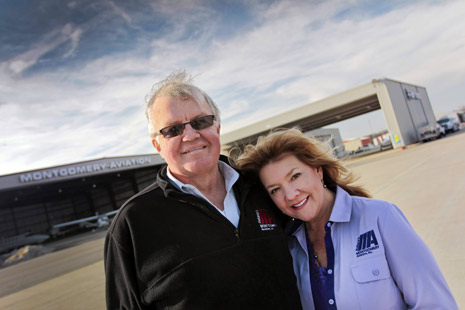 Then one day, some men in three-piece suits landed and stepped out of their King Air. “They looked around, saw kind of a run-down building, and said, ‘Boy, aren’t you glad you’re not from here?’
Then one day, some men in three-piece suits landed and stepped out of their King Air. “They looked around, saw kind of a run-down building, and said, ‘Boy, aren’t you glad you’re not from here?’
“That made me realize real quick I had to do something, because when people come into your airport, that’s their first impression of the community. It’s a lasting impression. I had to build something nice so they think this community is good for them if they want to relocate a business here,” Montgomery said. He convinced a banker he needed some money and built a jet center with a large canopy that allows large aircraft to unload and load out of the weather. If you arrive in a Piper Cub, you still take advantage of the company slogan, “We’ve Got You Covered.” There’s no place inside to put shirttails, but students who solo instead are mentioned the modern way in the Montgomery Aviation blog online. Like many of today’s successful flight schools and fuel centers, he has a website and organizes group fly-outs to popular destinations to keep pilots involved.
Now, 25 years later, he has three operations. One, at Frankfort, Indiana (FKR), sells Jet-A fuel to a successful skydiving operation that finds a great many teenage Hoosiers are eager to jump out of airplanes. Another at Peru, Indiana (GUS), serves visitors in small aircraft who visit the Grissom Air Museum. He has managed to blend mom and pop with the big-city folks.
From flight school to concierge
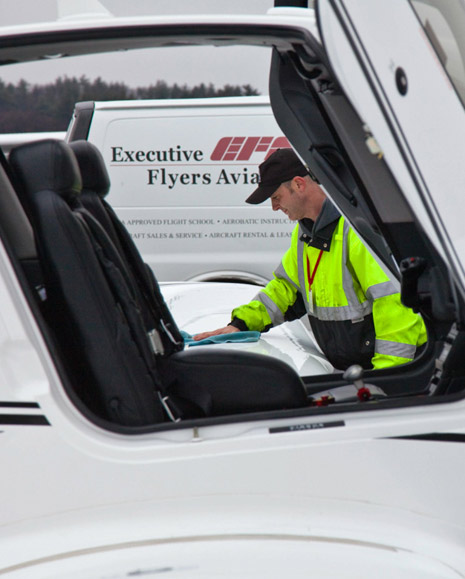 Executive Flyers Aviation on the outskirts of Boston at Laurence G. Hanscom Field (BED) in Bedford, Massachusetts, is true to its name today more than ever, despite celebrating its fiftieth anniversary in March. The culture of the aviation community has changed drastically, and the school—founded by the late Myron Goulian and his wife, Rita, parents of airshow and Red Bull Air Race pilot Michael Goulian—has changed with it.
Executive Flyers Aviation on the outskirts of Boston at Laurence G. Hanscom Field (BED) in Bedford, Massachusetts, is true to its name today more than ever, despite celebrating its fiftieth anniversary in March. The culture of the aviation community has changed drastically, and the school—founded by the late Myron Goulian and his wife, Rita, parents of airshow and Red Bull Air Race pilot Michael Goulian—has changed with it.
“Back when I started in the 1980s, the person that was learning to fly was really willing to commit to the time and the passion of aviation. They were willing to sit through ground schools and become a part of the community, where today much of our clientele—although they love flying—love it in a different way,” Michael Goulian said. “It’s really a means to a business end for many people, especially for our clientele that are flying Cirrus [aircraft]. The airplane is so capable that they end up using it as a business tool a lot more than the people that might have been around in the ’70s and ’80s and even into the ’90s, that were just boring holes in the sky.
“What we see is that we dispatch the airplane with the renter but also [in questionable weather] with a flight instructor as a safety pilot. Although they are busy, they utilize an airplane more than they used to, just in a different way.
“We cater to customers like that who are busy. They call and say they will be there in 15 minutes, and we have the airplane untied for them, the doors are open, and the airplane is ready to go. If it is a dual flight we will preflight the airplane for them, and they go with a flight instructor. When they come back we push the airplane back and tie it down for them. They just use the airplane to fly and we take care of the rest. It is more of a concierge service. I would say a good 30 percent of our business is like that now,” Goulian said.
Email [email protected]
Seeing an airport as ‘the third place’
“Coined by sociologist Ray Oldenburg, the third place refers to a social setting distinct from both home (the first place) and work (the second place). Though the adoption of the designation is recent, the concept is not. Humans have always gravitated to settings that provide a reprieve from both home and office, be they the coffee houses of the Ottoman Empire, the pubs of Ireland, or the Starbucks of everywhere else today. These places play an important role in human culture by providing meaning and a sense of community.”—Matt Honegger, writing about modern airport terminals in Airport World, January 2013
